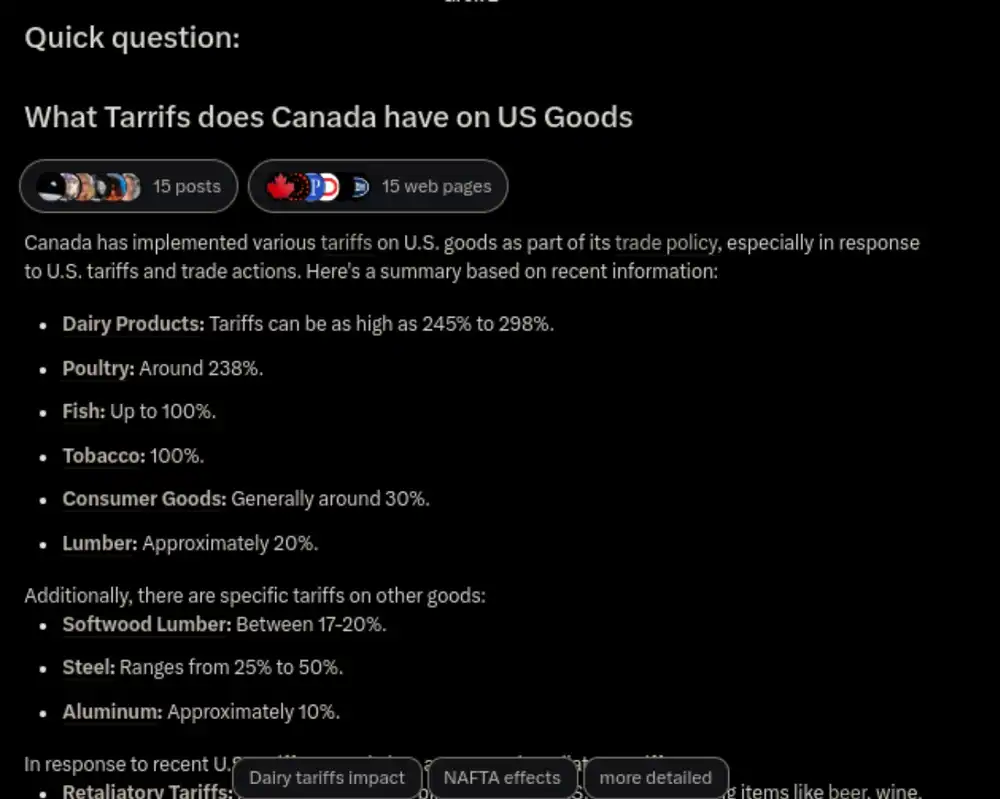From todays Toronto Star
The U.S. is heading toward insolvency.
America’s budget deficit hit $1.8 trillion (U.S.) in 2024, the third-highest shortfall in history after the pandemic-related deficits of 2020 and 2021.
America’s national debt stands at a record $35.4 trillion. The U.S.’s debt-to-GDP ratio, a leading indicator of national financial health, was a manageable 63 per cent as recently as 2007. It has since climbed steadily to 123 per cent in 2024.
Canada’s debt-to-GDP ratio was 42.1 per cent in fiscal 2024.
“The U.S. federal budget is on an unsustainable path,” Jerome Powell, chair of the U.S. Federal Reserve Board, said in December.
It’s doubtful that America will restore its fiscal health any time soon.
It is politically impossible to cut so-called entitlement programs like Social Security, Medicare for seniors, Medicaid and VA benefits, which tens of millions of Americans rely on.
Which is why Trump and his designated downsizer, Elon Musk, the tech billionaire, are focused on cutting discretionary spending.
But the impact of those savings in bolstering America’s fiscal strength is akin to draining the “Gulf of America” by drawing buckets of water from it.
Yet those hasty cuts underway just weeks after Trump was sworn in are putting Americans in harm’s way.
The Trump administration has conducted mass layoffs across the U.S. government, instilling paranoia in workers who remain.
Thousands of civil servants have been fired at federal departments and agencies. They include the Centers for Disease Control and Prevention (CDC), the National Institutes of Health (NIH), the Food and Drug Administration (FDA), the Federal Aviation Administration (FAA) and the National Nuclear Security Administration, which oversees America’s stockpile of nuclear weapons.
America’s fiscal bind also accounts for Trump’s tariff regime.
Trump needs the anticipated $1 trillion in surtaxes on goods imported from Canada, Mexico and eventually Europe and Asia Pacific to narrow the U.S. budget gap and to finance a renewal of tax breaks from Trump’s first presidency that expire this year.
In the longer run, though, as Powell has repeatedly warned, America needs its economic growth to outpace further additions to the national debt or the U.S. risks insolvency.
But America’s aging demographics rule out sufficiently robust GDP growth to reduce that further debt accumulation.
Which means the U.S. needs to cut spending or raise revenues or both. But Capitol Hill lacks the spending discipline for that. And Trump has revenue-sapping tax-cut promises to keep.
The result is a growing liquidity crisis when additional money is needed to properly fund America’s education and health-care systems.
Americans, who lack a universal health-care system, don’t live as long as their peers in other G7 countries.
In 2021, the latest year for which the OECD has data, U.S. lifespan averaged 76.4 years, below the G7 average of 81.2 years and Canada’s 81.6 years and China’s 78.2 years.
And America’s education system ranks 18th among the 85 countries assessed by the UN. Canada ranks eighth.
Substandard U.S. education means this century won’t belong to America as the 20th century did.
And Trump’s tariff violations of the Canada-U.S.-Mexico Agreement (CUSMA) that he himself signed means “We’re a nation that doesn’t keep its word, that can’t be trusted to honour its agreements,” says Paul Krugman, the U.S. Nobel laureate economist.
“This makes us distrusted and friendless,” says Krugman. “It also makes us weak.”
America’s geopolitical hostility, its inadequate social safety net, and its stubborn xenophobia are alien to Canadian values.
Which means Canada can only be annexed against its will, a catastrophic endeavour for any U.S. government that attempted it.
The world has seen Russia struggle to achieve a clear victory in Ukraine. America shares that weakness in its failed wars in Vietnam, Iraq and Afghanistan.
“The United States, in its current position of radical instability and a complete collapse of national solidarity, has never been less prepared for conflict,” Canadian novelist Stephen Marche wrote last month in Maclean’s.
Trump’s territorial designs elsewhere would be best redirected inward.


